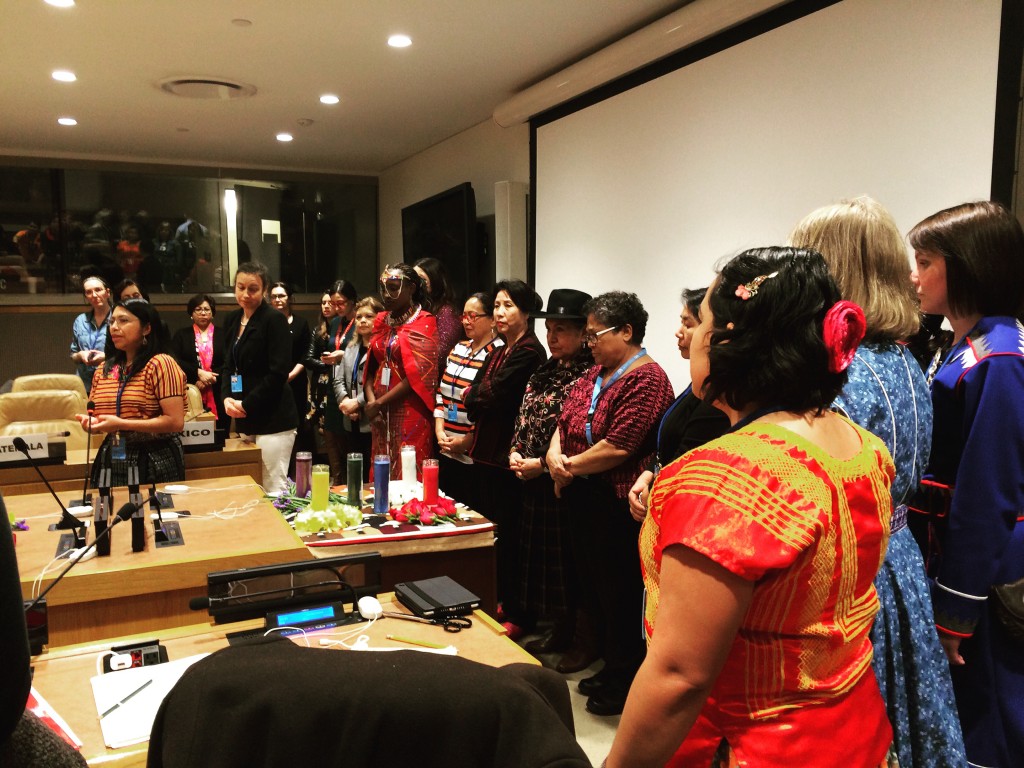Guest blog by Rebecca Haydu
When I ask myself this, I am met with more questions than answers. Where does positive change actually come from, and who decides what that looks like? What does it mean to engage in an international space like the United Nations as compared to working at home? Where does the movement for climate justice begin and end? How does someone like me fit in all of this? It’s easy to find a linear narrative of struggle and hope to latch onto, but much harder to face these nuances and complexities, to challenge even the narratives that we lean on as activists.
If I wanted to tell my life story of what led me to climate justice, I could begin with my upbringing in a liberal Northeastern family, a descendent of immigrants who believed in hard work and honesty. I could tell you that growing up on a farm taught me to live with the rhythms and cycles of nature, how a change in weather patterns affected our daily life or risked our neighbors’ livelihoods. I might also go into depth about my time abroad, and how living with indigenous communities brought the reality of climate change even closer than seeing my mother’s hometown destroyed by Hurricane Sandy. Yet, for some reason, this doesn’t quite seem to get to the root of the question: Why climate justice? Maybe the answer is not so clear.

As someone who has not previously identified with the climate justice movement, I struggle with finding an affirmative response. My involvement in local and international activism has been focused on movements for gender equality and sustainable agriculture. While climate justice aims to encompass and unite these diverse efforts along with many others, I still feel lost deciphering the sea of acronyms, names of figureheads, and outcomes of texts from the sidelines. Perhaps in this dilemma lies part of an answer: the importance of unity and solidarity across movements who share the common goal of a more just and equal world. If climate justice is to be the struggle that unifies all struggles, this is an imperative.
But the question remains: why me? why climate? The sheer incomprehensible enormity of climate change can easily send one into nihilistic apathy. I can’t deny that from my particular socioeconomic and geographic position, I’ll be able to quite comfortably ignore the realities of climate change for much of the foreseeable future. I’ve seen enough images of polar bears stranded on icebergs to effectively numb myself into self-centered oblivion for decades. I’ve come to understand the human side of climate change, the failed crops of subsistence farmers, the displacement that creates climate refugees, the rising temperatures that put the sick and elderly at risk. Yet my privilege still allows me to live my life as I normally would, day after day.
My mother taught me that the most important value I can learn is empathy. Empathy is not just being able to sympathize with someone else’s struggle, but to be able to actually feel it in your bones, to walk a mile or a hundred in their shoes. I may never know what it’s like to be on the front lines of climate change, but learning to live and work in solidarity with those who do is a much needed expression of empathy in a world that does everything in its power to rob us of our ability to feel. Through engaging in these spaces, both locally and globally, we might be able to build the bridges needed in order for all of us to stay afloat.